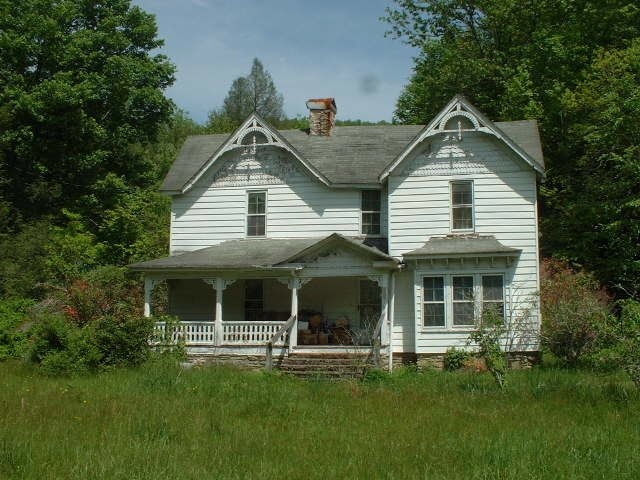Purchasing real estate can be an exciting and lucrative investment, but it’s important to approach the process with caution and thorough understanding. One particular type of property that draws attention is “forgotten properties.” These are often properties that have been abandoned, neglected, or even forgotten by their previous owners. While the idea of acquiring such properties may seem like a unique opportunity, there are several legal considerations to keep in mind before diving in. This blog post will explore the legal aspects of purchasing forgotten properties, providing you with the knowledge necessary to make informed decisions.
What Are Forgotten Properties?
Forgotten properties refer to real estate that has been left in disrepair or abandoned, sometimes for many years. These properties may be inherited and left vacant, or they could be a result of foreclosure, bankruptcy, or simply neglect. The key characteristic of forgotten properties is that they have fallen off the radar, often because the owners have either lost interest, faced financial hardship, or no longer maintain their obligations toward the property.
While these properties may seem like potential gems at first, they are often tangled in legal complexities that require careful attention. Understanding the legal challenges is crucial to ensuring that the property’s purchase is valid and that you do not inherit unexpected problems down the road.
Title Search and Ownership Issues
One of the first steps when purchasing any property is to conduct a title search. This is especially important when dealing with forgotten properties. The title search will help you verify the ownership of the property and uncover any potential claims or legal disputes. Forgotten properties may have unclear ownership histories, meaning you could encounter issues such as:
- Unresolved liens: There may be outstanding debts associated with the property, such as unpaid taxes, mortgage balances, or contractor fees. These liens can potentially be transferred to you upon purchase.
- Inherited properties: If the property has been inherited by someone who is not actively maintaining it, there could be confusion or disputes over who has the legal right to sell it.
- Ownership disputes: Sometimes, abandoned properties are involved in lengthy disputes over ownership, especially if multiple heirs or individuals claim rights to the property.
Before making any commitment to purchase, make sure you work with a real estate attorney or title company to ensure that the title is clear and that you’re not inheriting a tangled legal situation.
Property Condition and Disclosure
While forgotten properties might be priced at a discount due to their condition, it’s important to remember that you are assuming responsibility for any repairs and maintenance. These properties are often in disrepair and might not have been inspected for many years. In some cases, they may even be unsafe to enter. Some of the common issues that forgotten properties might present include:
- Structural damage: Over time, neglected properties can experience significant structural issues, such as roof damage, foundation problems, or water damage.
- Environmental hazards: Depending on the age and location of the property, there may be risks of environmental hazards such as asbestos, mold, lead paint, or contamination from nearby industrial sites.
- Pest infestations: Abandoned properties often attract pests, including rodents, insects, and other wildlife. These infestations can cause serious damage to the property and pose health risks.
From a legal perspective, it’s essential to understand that you might be required to make significant investments in the property to bring it up to code, or you may face fines and penalties for neglecting repairs or failing to meet local health and safety standards. Additionally, sellers are generally required to disclose known issues with the property, but when dealing with forgotten properties, it’s possible that some problems may go undisclosed.
Hiring a qualified inspector to assess the property is a critical step to avoid unpleasant surprises after the purchase. This inspection will help you understand the full scope of potential repair costs and whether the property is even habitable. If you want to learn more, please visit Moss and Fog to get more information.
Zoning and Land Use Laws
Another legal aspect of forgotten properties is zoning and land use regulations. Zoning laws govern how properties can be used and what type of development is permitted in a particular area. Forgotten properties might have outdated zoning statuses or may be located in areas that have changed in terms of urban development.
It’s important to conduct a thorough investigation into the zoning regulations that apply to the property you are considering purchasing. For instance, you should check if:
- The property is zoned for your intended use: If you plan to develop the property into a residential or commercial space, ensure that the zoning laws allow for this type of use.
- There are any land use restrictions: Sometimes, forgotten properties may have restrictions that prevent certain types of construction or modifications.
- Zoning changes: Some properties may have been subject to zoning changes over the years, which could impact their future value or development potential.
It’s advisable to work with a local planning department or zoning expert to understand the property’s current zoning status and any future potential changes that could affect your investment.
Adverse Possession
One of the most unique legal aspects of forgotten properties is the possibility of adverse possession. Adverse possession is a legal doctrine that allows someone to claim ownership of a property if they have occupied it for a specified period of time without the permission of the original owner. This is often referred to as “squatter’s rights.”
In some jurisdictions, if a property has been abandoned and left unused for many years, a squatter may potentially file a claim for adverse possession, thereby gaining legal ownership. While this situation is not typical, it’s important to understand that forgotten properties are more vulnerable to these types of claims due to their abandonment.
To protect yourself from the possibility of losing ownership to an adverse possessor, it’s essential to conduct a thorough search of the property’s history and keep an eye out for any potential squatters or unauthorized occupants. You may also want to ensure that the property is securely locked and well-maintained to prevent this from happening.

Property Taxes and Foreclosure
If a forgotten property has not been properly maintained, there is a chance that the property owner has fallen behind on property taxes. In some cases, unpaid taxes can lead to foreclosure, which may complicate the purchase process. You should be aware of the following:
- Tax lien foreclosure: If property taxes are unpaid, the local government can place a lien on the property and eventually foreclose on it if the taxes remain unpaid. If you are interested in purchasing a forgotten property, make sure to investigate whether there are any outstanding tax liabilities that could lead to foreclosure.
- Delinquent tax auctions: Some forgotten properties are sold through tax lien or tax deed auctions. These auctions can provide opportunities to purchase properties at a steep discount, but there may be additional risks, such as hidden debts or title issues that need to be addressed.
Before purchasing a property with a history of unpaid taxes, it’s critical to understand the tax situation thoroughly and determine whether you can resolve any outstanding liabilities.
Conclusion
Purchasing forgotten properties can offer great opportunities for investment, but the legal considerations are vast and complex. From title issues and ownership disputes to environmental hazards and adverse possession claims, there are many potential pitfalls that could turn a seemingly good deal into a costly nightmare. To ensure that your investment is sound, always conduct thorough due diligence, work with professionals such as real estate attorneys and inspectors, and be prepared for the possibility of unexpected legal challenges.
By approaching the purchase of forgotten properties with caution and a clear understanding of the legal landscape, you can avoid potential legal issues and maximize the value of your investment.










